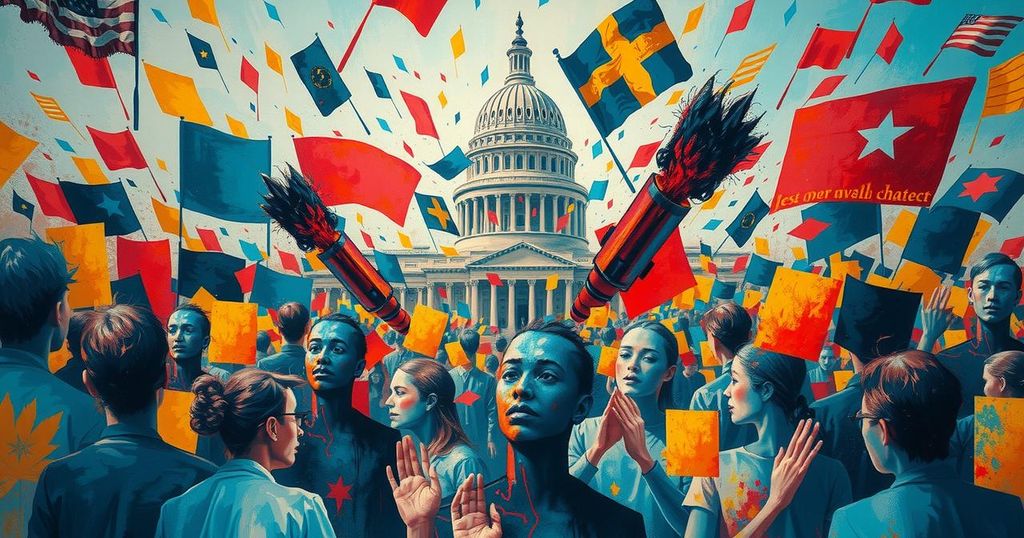In his first 50 days in office, Donald Trump has enacted significant cuts to US aid, impacting millions globally, particularly in nations like Kenya where health crises could worsen. Concerns are mounting about the potential resurgence of diseases due to these cuts, while allies fear for their security as US foreign policy shifts. Criticism is directed at Trump for his rapid changes and their adverse effects on international relations.
In the first 50 days of Donald Trump’s presidency, his administration has significantly altered America’s role on the global stage, leading to concerns about the consequential impact on millions of lives. Notably, aid contracts have been drastically reduced, which has incited alarm among health professionals and affected populations, particularly in regions reliant on US assistance. This period has been marked by Trump’s controversial decisions, which critics argue have jeopardized America’s alliances and emboldened its adversaries.
In Kenya, the effects of reduced US aid have become starkly evident. Health workers warn that the support cut is akin to “biological warfare,” with implications for the resurgence of diseases such as HIV, tuberculosis, and malaria. Affected individuals express deep fear about their future without crucial medical aid. One mother, Anne, who is HIV positive, voiced her dread: “I’m so worried because if it carries on like this the medication could run out.”
Kenya previously received approximately $850 million in annual aid, which has abruptly ceased, causing significant disruption. Healthcare professionals, including manager Martha, express that they were caught off guard by this sudden change and predict an increase in child mortality rates as a direct result of the aid cuts. Nearly all US aid contracts have been terminated, signaling an alarming trend.
As US-funded healthcare initiatives falter, fears of deteriorating public health escalate. Eric Okioma, an HIV-positive charity director, stated, “When you look at it from a public health aspect, that’s biological warfare.” Despite some support for Trump’s policies, many Kenyans share unease regarding the abrupt cessation of aid, emphasizing the need for a more measured approach.
In addition to the humanitarian crisis in Africa, Trump’s foreign policy has raised alarms within NATO, particularly among member countries like Finland, situated directly on the border with Russia. Residents express anxiety over potential Russian aggression and call for increased military readiness. Individuals training at shooting ranges cite the unstable international climate as a catalyst for a surge in interest in self-defense.
In Greenland, concerns regarding Trump’s attitude towards the territory are palpable. Many Greenlanders feel threatened by Trump’s aspirations to acquire their land, describing his behavior as alarming. Jurgen Boassen, a pro-Trump figure, believes that Greenland will eventually embrace a closer relationship with the US, suggesting a profound cultural shift may happen. However, sentiment on the ground reveals that a majority oppose US annexation.
The overarching theme of this report illustrates the stark divergence between Trump’s America First rhetoric and the repercussions that these policies may have globally. As the United States retreats from its role as a reliable ally and supporter, other nations express trepidation about their future security and health.
The early actions of Donald Trump’s administration have had substantial ramifications on international relations, particularly concerning US aid and collaboration with allies. With millions reliant on American support, the abrupt cessation of aid has deepened vulnerabilities in healthcare systems, particularly in nations like Kenya. Simultaneously, fears of increased instability and aggression in Europe persist, emphasizing the need for careful consideration of America’s foreign policy strategies. This situation underscores a potential decline in America’s global influence and a shift in dynamics that could empower adversaries.
Original Source: news.sky.com




